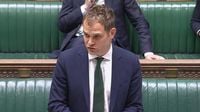The United Kingdom is currently engaged in discussions with France and Saudi Arabia regarding the recognition of a Palestinian state, a significant diplomatic move that could unfold at a June 2025 conference aimed at revitalizing the political path to a two-state solution in the Middle East. This revelation, made by UK Foreign Secretary David Lammy, comes amid increasing pressure from various political factions and civil society groups within the UK advocating for immediate recognition of Palestine.
In a parliamentary debate held on April 29, 2025, Lammy acknowledged that the UK government is exploring the potential for recognition, emphasizing that any such decision would need to have tangible impacts on the ground rather than merely serving as a symbolic gesture. “We want to take the step when it will have an impact on the ground and not at a symbolic moment,” Lammy stated.
His comments follow a week of heightened political activity, including a visit from Palestinian Prime Minister Mohammad Mustafa to London, during which a memorandum of understanding was signed, affirming the UK’s support for the “inalienable right of the Palestinian people” to an independent state. This agreement also included a commitment of £101 million to aid humanitarian relief, economic development, and governance reforms for the Palestinian Authority.
However, despite the memorandum's assurances, UK Middle East Minister Hamish Falconer rejected immediate calls from a cross-party group of MPs to recognize Palestine, citing the need for “practical measures” to be in place first. During the debate, Falconer reiterated the government’s stance, stating that while recognition is desired, it must be aligned with a credible process toward achieving a two-state solution.
Falconer’s comments reflect a broader concern within the UK government about the complexities surrounding Palestinian statehood, particularly in light of ongoing violence and settlement expansion in the West Bank. He noted that questions regarding security and governance remain unresolved, which complicates the feasibility of two states coexisting peacefully.
Adding to the urgency of the situation, a coalition of hundreds of British Muslim organizations, coordinated by the Muslim Council of Britain (MCB), submitted a letter to Prime Minister Keir Starmer on the same day as the parliamentary debate, demanding immediate recognition of Palestinian statehood and a permanent ceasefire in Gaza. The MCB highlighted the “profound concern” among British Muslims regarding the humanitarian crisis in Gaza, where UNICEF reports that over 51,000 people, including at least 15,000 children, have been killed since October 2023.
The coalition's letter also criticized the UK government for its perceived double standards in handling refugee situations, contrasting the welcome extended to Ukrainian refugees with the restrictive measures faced by Palestinians seeking safety. “Ukrainian refugees are welcomed with open arms,” the letter states, underscoring the growing frustration within the UK’s Muslim community regarding the government’s foreign policy.
As the UK considers its next steps, it faces a backdrop of international developments. French President Emmanuel Macron has indicated that France may recognize a Palestinian state as early as June 2025, coinciding with the upcoming conference. This potential recognition by two permanent members of the UN Security Council could significantly alter the political landscape and lend momentum to the Palestinian cause.
However, Lammy expressed caution, noting that the UK would prefer to recognize Palestine as part of a process leading to a viable two-state solution rather than as an isolated action. He emphasized that the recognition of Palestine should not merely be a formality but should contribute to a meaningful resolution of the conflict. “No one has a veto on when the UK recognizes that Palestinian state,” he remarked, highlighting the growing pressure on the UK to align with the 147 countries that have already recognized Palestinian statehood.
In a related development, Admiral Sir Tony Radakin, the UK’s Chief of the Defence Staff, faced questions regarding the UK’s military involvement in the ongoing conflict, particularly concerning over 500 Royal Air Force surveillance flights over Gaza since December 2023. These flights have raised concerns about the UK’s complicity in the violence, especially as they occurred even during ceasefires. Radakin refused to comment on whether the UK’s intelligence-sharing with Israel might implicate the government in potential war crimes.
The political landscape is further complicated by the ongoing expansion of Israeli settlements in the West Bank, which Lammy described as “shocking.” In the past year alone, 59 outposts have been established, compared to an average of seven annually over the previous 25 years. This rapid expansion raises critical questions about the viability of a future Palestinian state and the long-term prospects for peace in the region.
As the UK navigates its diplomatic options, the pressure from MPs, civil society, and international partners is mounting. The upcoming June conference presents both an opportunity and a challenge for the UK to assert its position on Palestinian statehood. The decisions made in the coming weeks could have lasting implications for the UK’s foreign policy and its relationship with both the Palestinian people and its allies in the Middle East.
With the political discourse shifting and public sentiment increasingly favoring recognition of Palestine, the UK government must weigh its options carefully. The path forward is fraught with complexities, but the call for action from various stakeholders is clear: recognize Palestinian statehood, advocate for peace, and ensure that the UK does not remain a passive observer in a humanitarian crisis that continues to unfold.





